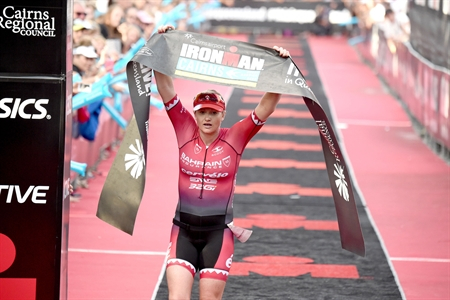I began a career in international sport when I was just thirteen years old and thus have always been very aware of the roles that diet can play in maximizing, or conversely hindering, the body’s performance.
When I was a young swimmer/runner, I expended large amounts of energy in growing, training and at school and the emphasis of my nutrition was getting enough calories into my little body. At university, I went through puberty, changed shape and put on weight. My focus changed into trying to limit my food intake; eventually I developed an eating disorder. My unhealthy relationship with food went on to cost me major medals in my ITU career as my weight fluctuated and I suffered multiple overuse injuries.
It took a huge effort to recover but gradually I have rediscovered the power of food as an energy and life source. Now I consume quality nutrients from fresh foods that fuel me for, and recover me from, training up to six hours everyday. My injuries have lessened, my performance is better and I am happy and healthy.
The most productive way to look at food is as a way to energise your body and allow you to get more out of life. Humans have a unique relationship with food in that we are able to make choices about our food sources and farm and package food to create a diverse variety of produce unlike animals. These options however can also leave us vulnerable to making poor dietary choices.
There are numerous ‘quick fix’ diets surrounding us in the media and in the mainstream but as athletes it remains of paramount importance to embrace a holistic view of nutrition rather than subscribe to diets. Here are some pointers in the right direction.
- Food choices should be made with the thought of ‘Fresh and alive food’. Eat food from the ground or from the tree – you can rarely go wrong eating natural produce
- Choose grilled, organically farmed meat and fish over fried and packaged food
- Eat several small meals through the day. Eating regularly provides satiation of appetite and metabolic optimization
- Base meals around salads and/or vegetables
- Make meat more flavoursome by marinating it rather than using creamy sauces to flavour dishes.
- Your groceries should be mostly perishable. Minimize the amount of food in your shopping that has packaging
- Minimize consumption of fizzy drinks including diet sodas as they leach minerals from your body. Fizzy water is ok
- Pack healthy options in your kit bag so you’re not tempted by immediate options when hungry.
- Don’t allow yourself to get too hungry – protein with each meal can curb hunger. Eggs, meat even a small amount of cheese are ideas to include
- Drink a lot of water – it is like a bath for your organs and blood
- Don’t feel guilty or pride over food. Integrate good food into your lifestyle and do your best but don’t obsess



